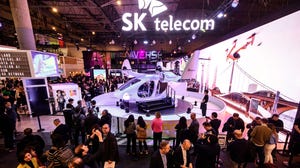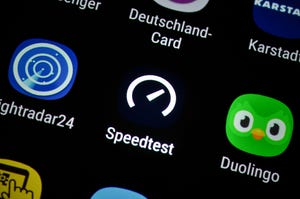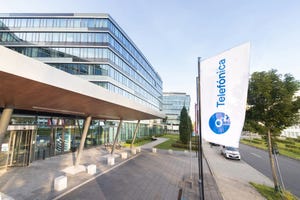
Vodafone has joined forces with Intel and Dallas-based Cirrus360 to demonstrate what they describe as a computer language framework for open RAN. The RAN Domain Specific Language (RDSL), the full details of which are spelt out in a white paper, is intended to automate the process of introducing and running new software across hardware from multiple vendors in an open RAN setup. The RDSL code originated in the Telecom Infra Project (TIP) and, says Vodafone, is designed to adopt a dynamic approach to software optimization. The RDSL technology applies to single-site mobile basestations but can also be used across a cluster of masts in both rural and urban areas via an operator-controlled interface, adds the operator.
Vodafone has also been turning its thoughts toward farming, and the effect 5G could have on it in the near future. Its new research predicts that if 5G technologies were applied across the entire food and drink supply chain ("from farm-to-fork," as the operator puts it) they could save 37 million metric tonnes of CO2-equivalent emissions between 2024 and 2035 – the same, says Vodafone, as removing 78,000 delivery trucks from UK roads. Inevitably, Vodafone uses the research as a handy peg on which to hang its conviction that its proposed merger with rival operator Three will be great for the UK. (See What's the Story? Three/Vodafone merger could rattle UK market.)
Hrvatski Telekom and Crnogorski Telekom, Deutsche Telekom's Croatian and Montenegrin units respectively, have chosen Ericsson Nikola Tesla – Ericsson's Croatian affiliate – as the sole supplier of software and connected services for the deployment of its new 4G/5G core network. Ericsson's cloud-native dual-mode 5G core will be integrated into the operators' cloud infrastructure. In related news, Hrvatski Telekom announced earlier this week that it is preparing to shut down its 3G network and expects the job to be completed by early 2025.
Nokia and UAE operator Du say they successfully completed a trial of 5G-Advanced Reduced Capability (RedCap) technology over a commercial network. RedCap technology is intended for 5G devices used in IoT settings, such as wearable health trackers and sensors for environmental monitoring. The two companies trialed MediaTek's T300 series RedCap test equipment in Du's 5G standalone (SA) radioaccess network (RAN) built with Nokia's AirScale radio products, leveraging existing midband spectrum.
In a similar neck of the woods, Nokia has also landed a 5G network orchestration gig with Saudi Arabian operator STC. The hope is that Nokia's Orchestration Center software will help STC roll out 5G slicing services.
Also on the network slicing trail is UK converged operator Virgin Media O2, which has teamed up with Ericsson to demonstrate the potential of the technology through a trial centered on the use of a dedicated 5G slice on VMO2's network used to play Hado, an augmented reality esport. Competitors participating in the game, which took place at Comic Con in Birmingham, UK, were able to compete remotely and in real time against teams located in the US and South Korea.
Openreach, BT's semi-autonomous network access arm, says it has now reached the halfway point in its plan to reach 25 million UK premises with its full-fiber network by the end of 2026. According to Openreach CEO Clive Selley, the company's build rate is accelerating and the second half of the rollout will be twice as fast as the first.
Deutsche Telekom, Qualcomm Technologies and Cetecom are collaborating on a new version of the EU's in-car emergency call system, eCall. The existing system is now "technically outdated," says Deutsche Telekom, and the replacement, the Next Generation Emergency Call (NG eCall), will transmit data via LTE and establish a voice connection to the vehicle via the commercial 4G network. Vehicle manufacturers and operators of emergency call centers will now be able to test the new system on Deutsche Telekom's network throughout Germany.
Read more about:
EuropeAbout the Author(s)
You May Also Like












